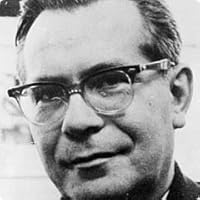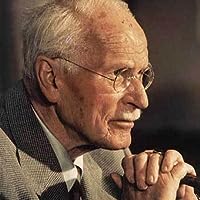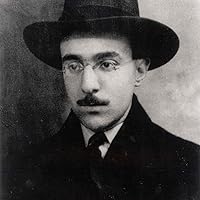Extroversion Quotes
Quotes tagged as "extroversion"
Showing 1-24 of 24

“In an extroverted society, the difference between an introvert and an extrovert is that an introvert is often unconsciously deemed guilty until proven innocent.”
― Venus in Arms
― Venus in Arms

“Spend your free time the way you like, not the way you think you're supposed to. Stay home on New Year's Eve if that's what makes you happy. Skip the committee meeting. Cross the street to avoid making aimless chitchat with random acquaintances. Read. Cook. Run. Write a story. Make a deal with yourself that you'll attend a set number of social events in exchange for not feeling guilty when you beg off.”
― Quiet: The Power of Introverts in a World That Can't Stop Talking
― Quiet: The Power of Introverts in a World That Can't Stop Talking

“Companionship is a foreign concept to some people. They fear it as much as the majority of people fear loneliness.”
― Killosophy
― Killosophy

“The exaggerated dopamine sensitivity of the introvert leads one to believe that when in public, introverts, regardless of its validity, often feel to be the center of (unwanted) attention hence rarely craving attention. Extroverts, on the other hand, seem to never get enough attention. So on the flip side it seems as though the introvert is in a sense very external and the extrovert is in a sense very internal - the introvert constantly feels too much 'outerness' while the extrovert doesn't feel enough 'outerness'.”
― Killosophy
― Killosophy

“Figure out what you are meant to contribute to the world and make sure you contribute it. If this requires public speaking or networking or other activities that make you uncomfortable, do them anyway. But accept that they're difficult, get the training you need to make them easier, and reward yourself when you're done.”
― Quiet: The Power of Introverts in a World That Can't Stop Talking
― Quiet: The Power of Introverts in a World That Can't Stop Talking

“When you go to a football game and someone offers you a beer [...], they're really saying hi, have a glass of extroversion.”
― Quiet: The Power of Introverts in a World That Can't Stop Talking
― Quiet: The Power of Introverts in a World That Can't Stop Talking

“Tocqueville saw that the life of constant action and decision which was entailed by the democratic and businesslike character of American life put a premium upon rough and ready habits of mind, quick decision, and the prompt seizure of opportunities - and that all this activity was not propitious for deliberation, elaboration, or precision in thought.”
― Anti-Intellectualism in American Life
― Anti-Intellectualism in American Life

“We have created youth ministry that confuses extroversion with faithfulness. We have effectively communicated to young people that sincerely following Jesus is synonymous with being 'fired up' for Jesus, with being excited for Jesus, as if discipleship were synonymous with fostering an exuberant, perky, cheerful, hurray-for-Jesus disposition like what we might find in the glee club or at a pep rally.”
― You Are What You Love: The Spiritual Power of Habit
― You Are What You Love: The Spiritual Power of Habit

“We [of Thelema] are whole-hearted extroverts; the penalty of restricting oneself is anything from neurosis to down right lunacy; in particular, melancholia.”
― Magick Without Tears
― Magick Without Tears

“If you don't love Jesus out loud, then it must not be real love. It's not enough to forge your own spiritual connection to the Divine. It must be displayed publicly.”
― Quiet: The Power of Introverts in a World That Can't Stop Talking
― Quiet: The Power of Introverts in a World That Can't Stop Talking

“I'm not a fan of Positive Psychology, by the way, because happiness is basically extroversion minus neuroticism, and we knew that 15 years ago.”
―
―
“Introverts are dependent on their own inside noise, extroverts are dependent of outside noise. The outputs are dependent on quality of those noise.”
―
―

“These people all fling themselves at me. Because I am uneasy and sad they all fling themselves at me larger than life. But I can put my arm up to avoid the impact and they slide gently to the ground. Individualists, completely wrapped up in themselves, thank God. It's the extrovert, prancing around, dying for a bit of fun - that's the person you've got to be wary of.”
― Good Morning, Midnight
― Good Morning, Midnight

“That Seigo could go into geisha houses, accept luncheon invitations, drop in at the Club, see people off at Shimabashi, meet them at Yokohama, run out to Oiso to humor the elders—that he could put in his appearance at large gatherings from morning to evening without seeming either triumphant or dejected—this must be because he was thoroughly accustomed to this kind of life, thought Daisuke; it was probably like the jellyfish's floating in the sea and not finding it salty.”
― And Then
― And Then

“I can pass for normal most of the time, but I understand perfectly why some of my autistic patients scream and flap their arms -- it's to frighten off extroverts.”
― Just Like Someone Without Mental Illness Only More So
― Just Like Someone Without Mental Illness Only More So

“Evangelicalism has taken the Extrovert Ideal to its logical extreme, McHugh is telling us. If you don’t love Jesus out loud, then it must not be real love. It’s not enough to forge your own spiritual connection to the divine; it must be displayed publicly. Is it any wonder that introverts like Pastor McHugh start to question their own hearts?”
― Quiet: The Power of Introverts in a World That Can't Stop Talking
― Quiet: The Power of Introverts in a World That Can't Stop Talking

“Naturally, at first, one is inclined to regard such differences as mere individual idiosyncrasies. But anyone with the opportunity of gaining a fundamental knowledge of many men will soon discover that such a far-reaching contrast does not merely concern the individual case, but is a question of typical attitudes, with a universality far greater than a limited psychological experience would at first assume. In reality, as the preceding chapters will have shown, it is a question of a fundamental opposition; at times clear and at times obscure, but always emerging whenever we are dealing with individuals whose personality is in any way pronounced. Such men are found not only among the educated classes, but in every rank of society; with equal distinctness, therefore, our types can be demonstrated among labourers and peasants as among the most differentiated members of a nation. Furthermore, these types over-ride the distinctions of sex, since one finds the same contrasts amongst women of all classes. Such a universal distribution could hardly arise at the instigation of consciousness, ie. as the result of a conscious and deliberate choice of attitude. If this were the case, a definite level of society, linked together by a similar education and environment and, therefore, correspondingly localized, would surely have a majority representation of such an attitude. But the actual facts are just the reverse, for the types have, apparently, quite a random distribution. In the same family one child is introverted, and another extraverted.”
―
―

“Kellogg School of Management Professor Camelia Kuhnen has found that the variation of a dopamine-regulating gene (DRD4) associated with a particularly thrill-seeking version of extroversion is a strong predictor of financial risk-taking. By contrast, people with a variant of a serotonin-regulating gene linked to introversion and sensitivity take 28 percent less financial risk than others. They have also been found to outperform their peers when playing gambling games calling for sophisticated decision-making.”
― Quiet: The Power of Introverts in a World That Can't Stop Talking
― Quiet: The Power of Introverts in a World That Can't Stop Talking

“When the extraverted were with someone who was highly introverted, they liked not having to be so cheerful. And the introverted found conversing with the extraverted “a breath of fresh air.” The picture we gain from Thorne is that each type contributes something to this world that is equally important.”
― The Highly Sensitive Person: How to Thrive When the World Overwhelms You
― The Highly Sensitive Person: How to Thrive When the World Overwhelms You
“There are two distinct groups of people in the world: the ones who tell stories, and those who pay attention.”
―
―
“Models of leader attributes that dominated in the early part of the 20th century emphasized leader traits. Several surveys and reviews of this literature identified a number of dispositional qualities that distinguished leaders from nonleaders, including intelligence, originality, dependability, initiative, desire to excel, sociability, adaptability, extroversion, and dominance. However, no single personal quality was strongly and consistently correlated with leadership.”
― Character Strengths and Virtues: A Handbook and Classification
― Character Strengths and Virtues: A Handbook and Classification
“In a study of 132 college
students at Humboldt University in Berlin,
the psychologists Jens Aspendorf
and Susanne Wilpers set out to understand
the effect of different personality
traits on students’ relationships with
their peers and families. They focused
on the so-called Big Five traits:
Introversion-Extroversion; Agreeableness;
Openness to Experience; Conscientiousness;
and Emotional Stability.
(Many personality psychologists believe
that human personality can be boiled
down to these five characteristics.)
Aspendorf and Wilpers predicted that
the extroverted students would have an
easier time striking up new friendships
than the introverts, and this was indeed
the case. But if the introverts were truly
antisocial and extroverts pro-social,
then you’d suppose that the students
with the most harmonious relationships
would also be highest in extroversion.
And this was not the case at all. Instead,
the students whose relationships
were freest of conflict had high scores
for agreeableness. Agreeable people are
warm, supportive, and loving; personality
psychologists have found that if you
sit them down in front of a computer
screen of words, they focus longer than
others do on words like caring, console,
and help, and a shorter time on words
like abduct, assault, and harass. Introverts
and extroverts are equally likely
to be agreeable; there is no correlation
between extroversion and agreeableness.
This explains why some extroverts
love the stimulation of socializing but
don’t get along particularly well with
those closest to them.”
―
students at Humboldt University in Berlin,
the psychologists Jens Aspendorf
and Susanne Wilpers set out to understand
the effect of different personality
traits on students’ relationships with
their peers and families. They focused
on the so-called Big Five traits:
Introversion-Extroversion; Agreeableness;
Openness to Experience; Conscientiousness;
and Emotional Stability.
(Many personality psychologists believe
that human personality can be boiled
down to these five characteristics.)
Aspendorf and Wilpers predicted that
the extroverted students would have an
easier time striking up new friendships
than the introverts, and this was indeed
the case. But if the introverts were truly
antisocial and extroverts pro-social,
then you’d suppose that the students
with the most harmonious relationships
would also be highest in extroversion.
And this was not the case at all. Instead,
the students whose relationships
were freest of conflict had high scores
for agreeableness. Agreeable people are
warm, supportive, and loving; personality
psychologists have found that if you
sit them down in front of a computer
screen of words, they focus longer than
others do on words like caring, console,
and help, and a shorter time on words
like abduct, assault, and harass. Introverts
and extroverts are equally likely
to be agreeable; there is no correlation
between extroversion and agreeableness.
This explains why some extroverts
love the stimulation of socializing but
don’t get along particularly well with
those closest to them.”
―
“The allure of power is magnetic, drawing people and resources toward those who wield it. As you pursue your dreams, understand that power is not only a means to an end but also a force that can attract new opportunities and alliances. Embrace the magnetic nature of power and use it to your advantage as you navigate the complex web of human interactions.”
― Machiavellian Dreams: A Manual
― Machiavellian Dreams: A Manual

“Life is an experimental journey that we make involuntarily. It is a journey of the mind through matter, and since it is the mind that journeys, that is where we live. And so there are contemplative souls who have lived more intensely, more widely and more turbulently than those who live externally. The end result is what counts. What was felt is what was lived. A dream can tire us out as much as physical labour. We never live as hard as when we've thought a great deal.”
― The Book of Disquiet
― The Book of Disquiet
All Quotes
|
My Quotes
|
Add A Quote
Browse By Tag
- Love Quotes 97k
- Life Quotes 75.5k
- Inspirational Quotes 72.5k
- Humor Quotes 43.5k
- Philosophy Quotes 29.5k
- Inspirational Quotes Quotes 27k
- God Quotes 26k
- Truth Quotes 23.5k
- Wisdom Quotes 23.5k
- Romance Quotes 23k
- Poetry Quotes 22k
- Death Quotes 20k
- Happiness Quotes 18.5k
- Life Lessons Quotes 18.5k
- Hope Quotes 18k
- Faith Quotes 18k
- Quotes Quotes 16.5k
- Inspiration Quotes 16.5k
- Spirituality Quotes 15k
- Religion Quotes 15k
- Motivational Quotes 15k
- Writing Quotes 14.5k
- Relationships Quotes 14.5k
- Life Quotes Quotes 14k
- Love Quotes Quotes 13.5k
- Success Quotes 13.5k
- Time Quotes 12.5k
- Motivation Quotes 12k
- Science Quotes 11.5k
- Knowledge Quotes 11k

